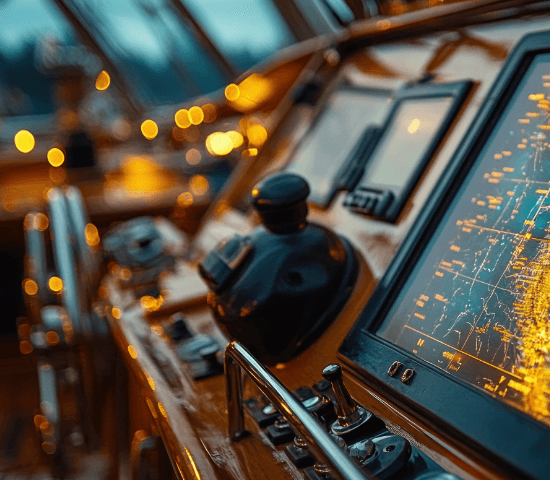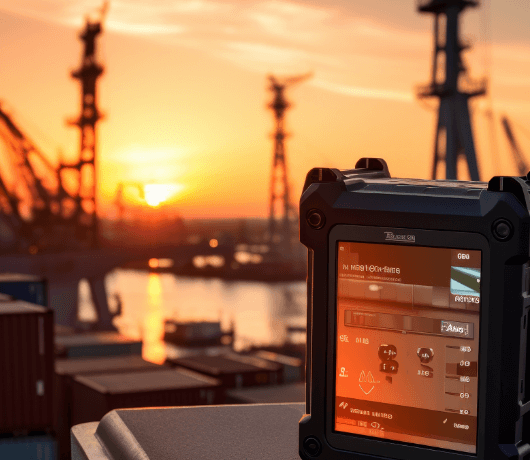What sets us apart
Remote Technical Support
We provide expert remote technical support via phone, email, Microsoft Teams, and TeamViewer, focusing on resolving any reported issues efficiently and effectively
Issue Analysis and Spare Parts Management
We thoroughly analyze reported issues to identify root causes and determine necessary spare parts before arranging service attendance
Inventory and Compliance Management
We maintain an up-to-date inventory of your vessel’s navigation and communication equipment, ensuring firmware and software compliance with the latest requirements
SOLAS Compliance
We offer Shore Based Maintenance agreements to ensure your GMDSS equipment meets SOLAS compliance standards
Citadel Phone Services
We provide quick responses for Citadel Phone hardware supply, airtime activation, and prepaid top-ups
LRIT Conformance Testing
We ensure a swift response for LRIT conformance tests, verifying terminal conditions before testing to avoid repeated procedures
Remote Magnetic Compass Calibration
We offer remote magnetic compass calibration and deviation card issuance, saving on engineer attendance, travel, and accommodation costs

Cutting-edge navigation technology
In today's maritime industry, sailors rely heavily on advanced marine equipment for efficient situational awareness. Modern navigation tools such as RADAR, ECDIS, Echo Sounders, Speed Logs, AIS, GPS, and Gyro systems are essential for safe and accurate navigation. These technologies provide critical information about the vessel's surroundings, underwater obstacles, and precise positioning, ensuring smooth and safe voyages.
Maintaining all navigation equipment is crucial to avoid unnecessary breakdowns and ensure compliance with SOLAS requirements. Regular maintenance and updates help guarantee the reliability and performance of these systems, contributing to the safety and efficiency of maritime operations.
Available marine equipment:
RADAR
This equipment detects surrounding targets, acting as the ship's "big eye." It can see up to 24NM (X-Band Radar) and 30NM (S-Band Radar), providing advanced situational awareness. Especially at night and during bad weather, RADAR is crucial as human eyes can't see beyond 1NM.
ECDIS (Electronic Chart Display System)
While RADAR monitors everything above the sea, ECDIS focuses on what's below, preventing the ship from grounding. Sailors use ECDIS to plan voyages by plotting waypoints on the chart, ensuring no grounding issues or obstructions.
Echo Sounder and Speed Log
These underwater devices, with transducers mounted at the ship's hull, measure depth (from the ship's bottom to the seabed) and speed (ship movement), respectively.
AIS (Automatic Identification System)
AIS shares information such as direction, speed, CPA (Closest Point of Approach), and TCPA (Time to Closest Point of Approach) with other vessels, aiding in collision avoidance.
GPS (Global Positioning System)
GPS receives signals from at least four satellites to calculate the ship's current position accurately.
Gyro
This equipment actively seeks north to determine the ship's heading.
Essential communication services
Reliable communication equipment is crucial for seamless navigation from port to port. Each piece of equipment plays a vital role in ensuring efficient and safe operations. Maintaining communication systems in optimal condition is essential, as a breakdown can leave a vessel without direction for cargo operations and cut off crew members from contacting their loved ones.
Our services ensure that your communication equipment remains in top shape, providing the necessary support for smooth and effective maritime operations.
Available communications services:
VHF (Very High Frequency)
Provides short-range communication up to 25 NM, commonly used for contacting pilots and nearby vessels.
MFHF (Medium Frequency High Frequency)
Enables long-range communication up to 500 NM, depending on the model. It is essential for distress calls and rescue operations when the vessel is far from shore.
Inmarsat-C
Facilitates short emails, telex, and fax communications. Typically serves as a third backup after FBB and VSAT due to its high cost, even for short emails.
FBB (Fleet Broadband)
Supports email, voice, and fax communications, usually serving as a backup communication system.
VSAT (Very Small Aperture Terminal)
Provides primary communication for email, voice, and crew internet, ensuring crew welfare and operational efficiency.
Why choose us
- Cost Savings : Reduce expenses through efficient remote support and preventive maintenance, minimizing the need for costly on-site service calls.
- Minimized Downtime : Avoid off-hire periods due to equipment breakdowns by ensuring all systems are well-maintained and quickly repaired.
- Smooth Sailing : Ensure uninterrupted and efficient voyages with reliable navigation and communication equipment.
- Crew Safety and Welfare : Enhance the safety and well-being of your crew with dependable equipment and swift issue resolution.
- Rapid Response : Benefit from quick responses to any reported issues, ensuring minimal disruption to your operations.
